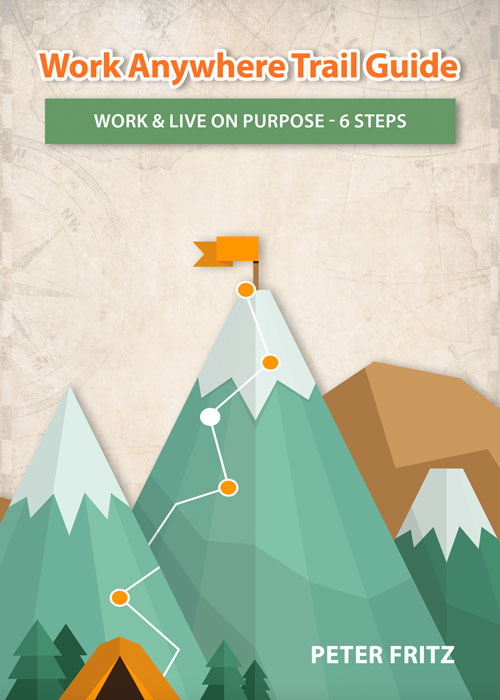[smart_track_player url=”http://traffic.libsyn.com/midlifetribe/Why_its_Pointless_Comparing_Yourself_to_Others_-_075.mp3″ background=”#f2f2f2″ social_gplus=”false” social_linkedin=”true” social_email=”true” ]
We do a lot of stupid things when we’re young, mostly because we’re ignorant and impulsive. Our brains haven’t fully developed. Sadly, the habit of comparing ourselves to others, plus its evil twin, FOMO (‘fear of missing out’), is one we struggle to outgrow.
Consumerism is mostly to blame, driven by the 3,000 marketing messages we see each day. We’re conditioned to play the stupidest of games – comparing ourselves to each other.
Even if we find ourselves breathing the rarified air at Branson, Buffett or Kardashian altitude, there will always be someone richer, happier, smarter, healthier, or more widely respected (envied?) than us.
When we aspire to a better life with nicer things (no judgement), we’re still making a fundamental error each time we compare ourselves to someone a little better off than ourselves. There’s a simple explanation, and there’s nothing woo-woo about it.
It’s all about data.
You’ve heard of the butterfly effect, right? I wrote about this a while back, but it essentially means that the slightest variation in data at the input stage produces wildly different outcomes at the other end.
Back in 1969, American mathematician, Edward Lorenz discovered that “…the details of a tornado could be influenced by minor perturbations such as the flapping of the wings of a distant butterfly several weeks earlier.”
What this means is, the people we compare ourselves to received ‘input data’ that was different from ours, so their outcomes are bound to be different. And those inputs aren’t slightly different, either. More than likely, the events and circumstances that brought them to this moment were massively different from ours.
Whilst every teenager struggles with perpetual envy and FOMO (thank you, Instagram), a huge number of adults battle with it, too – probably for the same reasons.
It becomes more pronounced, too, once we decide to start a business or build an audience for our thing. We’re driven by numbers. Our ‘likes’, ‘follows’, ‘shares’ and ‘subscribers’ describe how well we’re doing. Or so we think.
But here’s the rub. If we understand that everyone’s circumstances are different, and then we grasp the enormous impact that one little difference can have on the outcome in one, five or ten years, we realise that each of us has our own train to board; our own ship to swim out to. There isn’t one; there are 7.53 billion of them.
14 Reasons to Stop Comparing Yourself
There are many things at play here, but let me sum them up as succinctly as I can.
- You cannot win the comparison game. That’s because the goal posts are constantly shifting; the stakes forever escalate as each person, in turn, outdoes the other.
- The people you compare yourself to might have entirely different goals to you. Maybe they thrive on fame, while you’re more concerned with feeding six mouths at home.
- Likewise, they probably have very different living conditions to yours. Perhaps they have more free time than you, or their kids are no longer in school. Maybe their partner is more supportive (this can make or break a lot of things) or their parents raised them better. Who knows? Do you?
- What’s important to someone else may not be what’s important to you. Do what matters to you. This principle should guide every decision you make or you’ll travel down completely the wrong road. And no amount of money will compensate you for it.
- Don’t assume the lives of your heroes are filled with rainbows and unicorns. Even the most outwardly successful people have problems – perhaps with their health, their family, self-doubt (more often than you think), a lack of purpose, and their own version of keeping up with the Joneses.
- You don’t have ‘one shot’ at making it in this world. You have hundreds of them. Probably thousands.
- Breakthroughs often happen when you stop being so attached to the outcome.
- Like happiness, success is usually a byproduct of focussing on something else – like doing the work, regardless of the outcome.
- Those who seek short-term gains usually suffer long-term pain. Play the long game and watch the dynamics reverse.
- You can’t ‘miss’ your train. It’s yours, and it’s waiting for you to get on it whenever you’re ready. What’s more, there’s a whole fleet of them waiting for you. Find one that seems to fit your present stage in life and jump onboard. If you don’t like it, get off early and go choose another one.
- The ones who really succeed get through their failures quicker than their contemporaries. Eat sh*t when you need to and move on.
- Never pursue something that doesn’t sit well with your values. Your beliefs can (and should) evolve over time, but compromising your values will kill the best-laid plans in the end.
- Just because someone has a million followers on Instagram or has acquired and renovated six investment properties doesn’t mean you’re cut out for the same thing. There are a million different paths to success, and when you realise that your definition of success is the only one that matters, it’ll be easier to know where to focus your efforts. You’ll also know when you’re actually succeeding. You’ll feel it.
- One of the biggest lies we’ve been sold is that we can have and be anything we want. We can’t. Each of us is blessed with our own unique set of ‘superpowers’. I can want to be a pro basketballer all I like, but the odds of a middle-aged short-arse getting into the league is about a billion to one. I don’t like those odds. I know it’s much smarter to focus on my strengths than waste my life wishing for something that’s impossible. Notice I didn’t say ‘unlikely’; I said ‘impossible’.
Living on your own terms, playing to your special talents, and pursuing ideas that truly matter to you will put you way ahead of the game – and remember, it’s your game.
Comparing yourself to others, especially when the variables are so complex and therefore impossible to replicate, only creates stress, anxiety and disruption to your own journey.
Our lives are so short. Ask any 80-year-old. Yours should be a rich one, spent pursuing your dreams, your way, in your timeframe.
So go blaze your own trail, and let the others waste their lives playing the comparison game. It’s time you grew out of it.
![]() .
.
[ss_click_to_tweet tweet=”You’ll never win the comparison game – the goal posts are constantly shifting as each person systematically outdoes the other.” content=”You’ll never win the comparison game – the goal posts are constantly shifting as each person systematically outdoes the other.” style=”5″ link=”1″ via=”1″]
Affiliate Notice: If I recommend something to you (e.g. a book, software, a physical product, etc.), it’s because I’ve bought it, used it and benefited from it. Yes, I might get a small affiliate commission if you buy it, but it won’t cost you any extra. Besides, you don’t have to buy it through me, and if you don’t think it’ll help you, then don’t buy it from anywhere.
The Ultimate Goal – A Dedication to Jon James
Yesterday, a giant in my life called up to offer his final farewell. Today, he married his true love, Aurelia, before entering palliative care. He’s only 64, he’s athletic, and he's stronger than most 30-year-olds. But when cancer takes hold, it doesn’t care. Jonathon...
What are the first steps to starting a side business that makes you money?
[fusebox_track_player url="https://www.buzzsprout.com/1079927/5461972-what-are-the-first-steps-to-starting-a-side-business-ep-115.mp3?blob_id=22247092&download=true" title="What are the first steps to starting a side-business? - EP 115" social_linkedin="true"...
The purpose of purpose
[fusebox_track_player url="https://www.buzzsprout.com/1079927/5195959-the-purpose-of-purpose-ep-114.mp3?blob_id=20946406&download=true" title="The Purpose of Purpose - EP 114" social_linkedin="true" social_email="true" ]Recorded with SquadCastSubscribe: iTunes |...
Download the Guide





